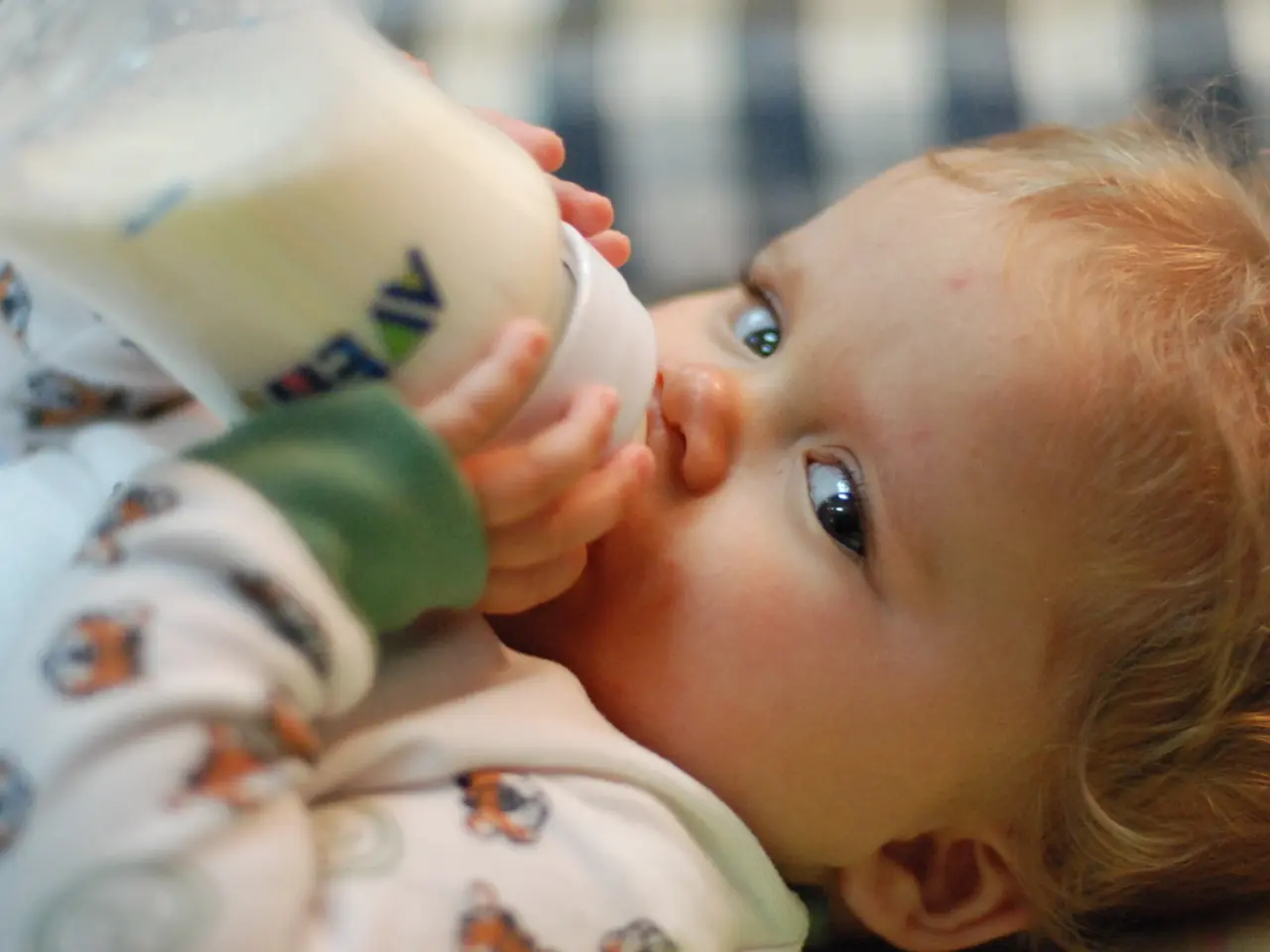Optimal Nutrition Methods for Newborns in Nigeria
In a bid to empower parents and caregivers in Nigeria, a new blog post offers practical insights and evidence-based recommendations on feeding newborns. The post aims to bridge the gap between traditional beliefs and modern, evidence-based approaches, and dispel myths surrounding infant feeding while highlighting culturally relevant practices.
The importance of proper feeding practices for newborns in Nigeria cannot be overstated. Optimal nutrition supports healthy development and protects against diseases, ensuring that newborns grow up strong and healthy.
Breastfeeding is the cornerstone of early nutrition, providing essential antibodies and promoting robust immunity in newborns. The blog emphasizes the role of exclusive breastfeeding for the first six months, as infants should be fed only breast milk, with no other foods or liquids. This practice provides all the essential nutrients and antibodies that protect against infections like diarrhea and pneumonia, which are critical in settings with limited sanitation and clean water access.
Dealing with feeding refusal can be challenging, but the blog offers advice on how to make the experience more enjoyable for the baby. Experimenting with different feeding positions or environments, introducing new foods gradually, and respecting the baby's individual preferences can improve acceptance.
Addressing potential challenges in feeding newborns is essential for their growth and development. Latch problems can occur when the baby struggles to properly attach to the breast and can lead to nipple pain and poor milk transfer. The blog provides tips on how to overcome these issues and ensure that the baby is getting enough nutrition.
Around six months of age, infants require additional foods to meet increased energy and nutrient needs, along with continued breastfeeding. Proper complementary feeding involves timely initiation, a nutritionally adequate and diverse diet, and appropriate meal frequency. Adhering to these practices supports optimal physical and cognitive development, helping reduce risks of malnutrition and morbidity.
The blog also addresses the issue of food contamination and allergies. Ensuring the area where you prepare food for your baby is clean and sanitized, washing fresh fruits and vegetables thoroughly, avoiding adding salt, sugar, or spices to your baby's food, introducing new foods one at a time, and avoiding feeding your baby foods that are known to commonly cause allergies are all essential steps to take.
Hygiene and safety are crucial during feeding. Wash hands thoroughly before handling feeding equipment or preparing breast milk, use clean water to wash bottles, nipples, and utensils, sterilize feeding equipment, and store breast milk in clean and sterilized containers.
Consulting healthcare providers is essential for guidance and support for newborn feeding, addressing any concerns, and providing tailored advice. The blog also recommends strengthening public health campaigns to increase awareness and practice of early initiation of breastfeeding, exclusive breastfeeding, and optimal complementary feeding. Tailoring nutrition programs by region and culture leveraging local data on challenges and predictors of feeding practices is also highlighted as a key strategy.
In conclusion, this blog post aims to guide Nigerian parents and caregivers on the best feeding practices for newborns. Proper feeding practices for newborns, including breastfeeding, formula feeding, and complementary feeding, are crucial for the growth, immunity, and overall health of newborns in Nigeria. By following the key strategies outlined in the blog, parents and caregivers can ensure that their newborns receive the optimal nutrition they need for a healthy and happy start in life.
References: [1] UNICEF. (2019). Nigeria Nutrition Situation: The State of the World's Children 2019. [online] Available at:
- Emotional development in kids is intertwined with their overall health, and the blog post underscores the significance of proper feeding practices in fostering this connection.
- Parenting can be challenging, yet education about health-and-wellness topics like newborn feeding can empower caregivers to make informed decisions that benefit their children's well-being.
- Fitness-and-exercise, mental-health, and nutritional aspects are crucial components of family life, and the blog highlights the importance of maintaining a holistic approach to raising kids.
- Science plays a vital role in understanding the complexities of infant feeding, and the blog underscores the importance of evidence-based approaches in bridging the gap between traditional beliefs and modern practices.
- As parents navigate the challenges of newborn feeding, it's essential to prioritize safety and hygiene to prevent the spread of infections and contaminants.
- Proper feeding practices go beyond just nutrition; they contribute to a baby's behavior and long-term development, supporting them in becoming healthy, well-rounded individuals.
- In the context of Nigerian families, practical insights and guidance on newborn feeding can help break the cycle of malnutrition and promote a brighter future for young generations.
- The blog post serves as a valuable resource for parents and caregivers, offering evidence-based recommendations that are relevant to the unique challenges and opportunities presented in the Nigerian context.




